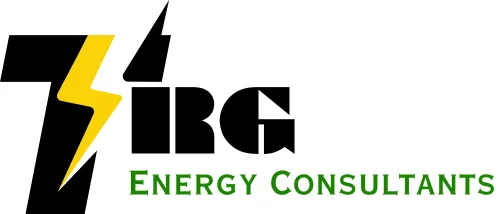NATURAL GAS PROCUREMENT PRACTICES
NATURAL GAS PROCUREMENT PRACTICES
NATURAL GAS PROCUREMENT BEST PRACTICES
Natural gas procurement involves the process of acquiring and securing the supply of natural gas to meet the energy needs of businesses, industries, or residential consumers. Here's why businesses need to integrate natural gas procurement best practices:
Why the Need for Natural Gas Procurement Best Practices?
When it comes to natural gas procurement, there are several best practices that can help entities ensure effective and efficient sourcing of natural gas. Here are some key practices to consider:
Market Analysis: Stay informed about market trends, natural gas prices, and supply-demand dynamics. Conduct regular market analysis to understand price fluctuations, regional variations, and emerging opportunities or risks. This information can guide your procurement strategy and contract negotiations.
Supplier Diversification: Avoid overreliance on a single supplier by diversifying your supplier base. Engage with multiple natural gas suppliers to enhance competition, negotiate better terms, and mitigate the risk of supply disruptions. Assess suppliers based on factors such as reliability, financial stability, operational capabilities, and customer service.
Long-Term Contracts and Hedging: Consider entering into long-term contracts with suppliers to secure stable pricing and ensure a reliable supply over an extended period. Additionally, explore hedging strategies, such as financial derivatives, to manage price volatility and protect against adverse market movements.
Demand Forecasting and Optimization: Develop robust demand forecasting models based on historical consumption patterns, business growth projections, and market factors. Accurate forecasting enables you to optimize your procurement strategy, negotiate favorable contracts, and manage your natural gas inventory effectively.
Energy Efficiency and Demand Response: Implement energy efficiency measures to reduce overall natural gas consumption. This includes investing in energy-efficient equipment, optimizing processes, and adopting technologies that minimize energy waste. Additionally, consider participating in demand response programs that incentivize reduced consumption during peak periods, allowing you to optimize costs and support grid reliability.
Contract Flexibility and Renegotiation: Build flexibility into your natural gas supply contracts. Include provisions that allow for contract modifications, volume adjustments, or pricing renegotiations in response to changing business needs or market conditions. This flexibility ensures adaptability and can lead to cost savings.
Engage Energy Consultants or Brokers: Consider partnering with energy consultants or brokers who specialize in natural gas procurement. These professionals have expertise in navigating the natural gas market, monitoring price trends, negotiating contracts, and managing risk. They can provide valuable insights and guidance throughout the procurement process.
Sustainability and Renewable Options: Evaluate the feasibility of incorporating renewable natural gas (biogas) or other sustainable energy sources into your procurement strategy. Assess options for purchasing carbon offsets or participating in renewable energy credit programs to support your organization's sustainability goals.
Regular Contract Review and Benchmarking: Conduct regular reviews of your natural gas supply contracts to assess their performance, pricing competitiveness, and adherence to service level agreements. Benchmark your contracts against prevailing market conditions and industry standards to ensure you are receiving competitive pricing and terms.
Regulatory Compliance: Stay up to date with relevant regulations and compliance requirements related to natural gas procurement, transportation, and usage. Adhere to environmental, safety, and reporting obligations to avoid penalties and maintain a responsible approach to natural gas procurement.
By incorporating these best practices into your natural gas procurement strategy, you can optimize costs, manage risks, and ensure a reliable supply of natural gas to meet your energy needs.
NATURAL GAS PROCUREMENT BEST PRACTICES
Natural gas procurement involves the process of acquiring and securing the supply of natural gas to meet the energy needs of businesses, industries, or residential consumers. Here's why businesses need to integrate natural gas procurement best practices:
Why the Need for Natural Gas Procurement Best Practices?
When it comes to natural gas procurement, there are several best practices that can help entities ensure effective and efficient sourcing of natural gas. Here are some key practices to consider:
Market Analysis: Stay informed about market trends, natural gas prices, and supply-demand dynamics. Conduct regular market analysis to understand price fluctuations, regional variations, and emerging opportunities or risks. This information can guide your procurement strategy and contract negotiations.
Supplier Diversification: Avoid overreliance on a single supplier by diversifying your supplier base. Engage with multiple natural gas suppliers to enhance competition, negotiate better terms, and mitigate the risk of supply disruptions. Assess suppliers based on factors such as reliability, financial stability, operational capabilities, and customer service.
Long-Term Contracts and Hedging: Consider entering into long-term contracts with suppliers to secure stable pricing and ensure a reliable supply over an extended period. Additionally, explore hedging strategies, such as financial derivatives, to manage price volatility and protect against adverse market movements.
Demand Forecasting and Optimization: Develop robust demand forecasting models based on historical consumption patterns, business growth projections, and market factors. Accurate forecasting enables you to optimize your procurement strategy, negotiate favorable contracts, and manage your natural gas inventory effectively.
Energy Efficiency and Demand Response: Implement energy efficiency measures to reduce overall natural gas consumption. This includes investing in energy-efficient equipment, optimizing processes, and adopting technologies that minimize energy waste. Additionally, consider participating in demand response programs that incentivize reduced consumption during peak periods, allowing you to optimize costs and support grid reliability.
Contract Flexibility and Renegotiation: Build flexibility into your natural gas supply contracts. Include provisions that allow for contract modifications, volume adjustments, or pricing renegotiations in response to changing business needs or market conditions. This flexibility ensures adaptability and can lead to cost savings.
Engage Energy Consultants or Brokers: Consider partnering with energy consultants or brokers who specialize in natural gas procurement. These professionals have expertise in navigating the natural gas market, monitoring price trends, negotiating contracts, and managing risk. They can provide valuable insights and guidance throughout the procurement process.
Sustainability and Renewable Options: Evaluate the feasibility of incorporating renewable natural gas (biogas) or other sustainable energy sources into your procurement strategy. Assess options for purchasing carbon offsets or participating in renewable energy credit programs to support your organization's sustainability goals.
Regular Contract Review and Benchmarking: Conduct regular reviews of your natural gas supply contracts to assess their performance, pricing competitiveness, and adherence to service level agreements. Benchmark your contracts against prevailing market conditions and industry standards to ensure you are receiving competitive pricing and terms.
Regulatory Compliance: Stay up to date with relevant regulations and compliance requirements related to natural gas procurement, transportation, and usage. Adhere to environmental, safety, and reporting obligations to avoid penalties and maintain a responsible approach to natural gas procurement.
By incorporating these best practices into your natural gas procurement strategy, you can optimize costs, manage risks, and ensure a reliable supply of natural gas to meet your energy needs.

